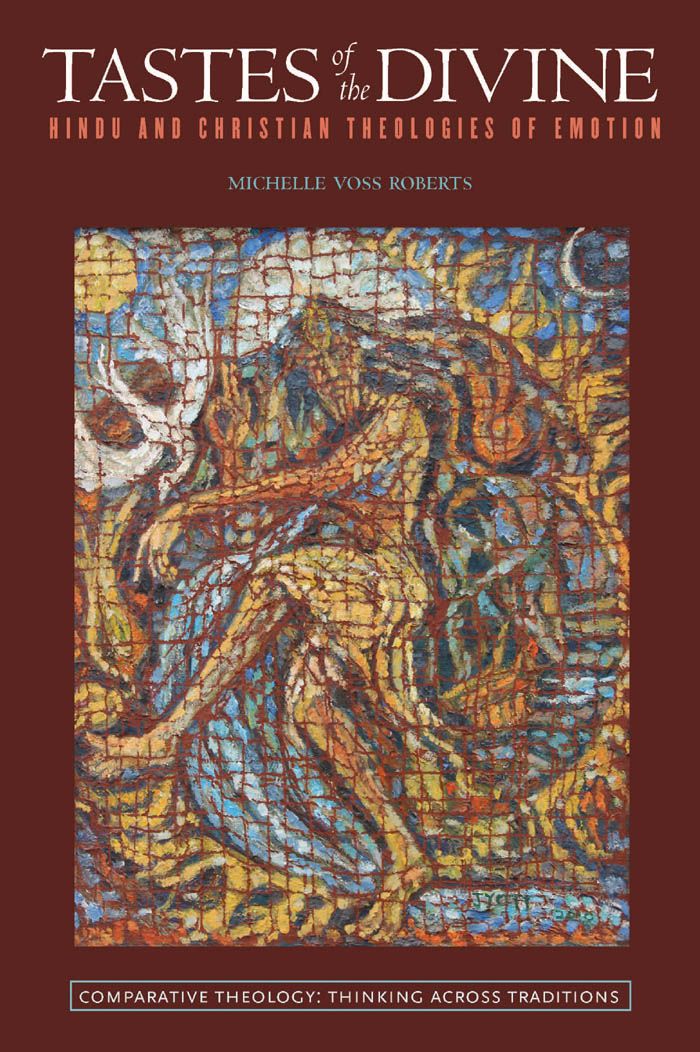Tastes of the Divine
Hindu and Christian Theologies of Emotion

This book can be opened with

The intensity and meaningfulness of aesthetic experience have often been described in theological terms. By designating basic human emotions as rasa, a word that connotes taste, flavor, or essence, Indian aesthetic theory conceptualizes emotional states as something to be savored. At their core, emotions can be tastes of the divine. In this book, the methods of the emerging discipline of comparative theology enable the author’s appreciation of Hindu texts and practices to illuminate her Christian reflections on aesthetics and emotion.
Three emotions vie for prominence in the religious sphere: peace, love, and fury. Whereas Indian theorists following Abhinavagupta claim that the aesthetic emotion of peace best approximates the goal of religious experience, devotees of Krishna and medieval Christian readings of the Song of Songs argue that love communicates most powerfully with divinity. In response to the transcendence emphasized in both approaches, the book turns to fury at injustice to attend to emotion’s foundations in the material realm. The implications of this constructive theology of emotion for Christian liturgy, pastoral care, and social engagement are manifold.
“This work is an important contribution to the current landscape of comparative theology—where deep learning is taking place across religious lines—as it moves the discourse forward by incorporating both critical analysis and embodied practices.”
The main thrust of her argument, and indeed the most delightful part of her book, comes toward the end in the section on 'Tastes of the Divine.'

